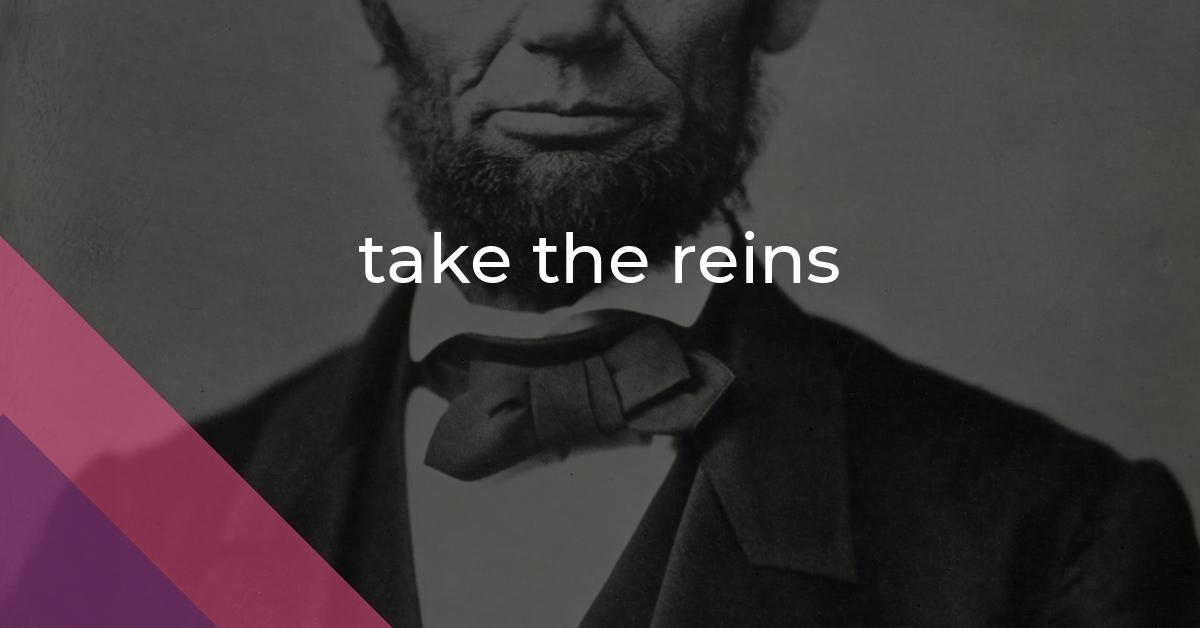take the reins: Idiom Meaning and Origin
What does ‘take the reins’ mean?
"Take the reins" means to assume control or responsibility, often in a leadership position. It derives from the act of grabbing the reins of a horse to guide its direction and speed.

Idiom Explorer
When someone "takes the point," it means they assume a leadership role or take charge of a situation. This idiom is often used in the military or sports contexts, where a person leads the way or sets the direction for others to follow.
"Take the liberty" means to do something without asking for permission or to assume a freedom that may not be granted. It can suggest acting in a bold or presumptuous manner, often with the expectation that others will accept it.
The idiom "take the initiative" means to be proactive and make the first move or take action without being prompted or instructed.
The idiom "take on" means to assume responsibility or an undertaking. It can also mean to confront or challenge someone or something.
The idiom "take matters into one's own hands" means to personally handle or assume responsibility for a situation instead of relying on others to do so.
The idiom "take it upon oneself" means to assume responsibility or take on a task without being asked or obligated to do so.
The idiom "run the show" means to be in charge or in control of a situation or event.
Harness the Control
take the lead is another idiom that is related to taking the reins. It means to assume control or take charge of a situation, similar to taking the reins. However, "take the lead" specifically emphasizes being at the forefront and leading others.
In both idioms, there is a sense of responsibility and authority. When someone takes the lead, they are not just assuming control, but also taking on the role of guiding and inspiring others to follow their direction. Taking the lead requires being proactive, decisive, and confident in one's abilities.
For example, in a team project, someone may take the lead by organizing and delegating tasks, making decisions, and setting the overall direction for the project. They become the person that others look to for guidance and support.
"hold the reins" is yet another idiom related to taking the reins. While taking the reins implies assuming control and responsibility, holding the reins emphasizes maintaining control and keeping a firm grip on the situation.
In the context of holding the reins, it is important to note the connotation of stability and control. When someone holds the reins, they are maintaining a sense of order, ensuring that things stay on track, and preventing any potential chaos or loss of control.
For example, a manager in a company may hold the reins by overseeing day-to-day operations, monitoring progress, and making adjustments as needed. They take charge of the situation and maintain control to ensure the smooth functioning of the organization.
By understanding the meanings and nuances of these related idioms, we can gain a deeper insight into the concept of taking the reins. Whether it's taking the lead or holding the reins, the underlying idea is one of assuming control and authority, being proactive and confident, and guiding others towards a desired outcome.
The idiom "take the reins" originates from horsemanship and signifies assuming control or taking charge of a situation. It has a metaphorical use that has become prevalent in various domains, especially in business and leadership contexts. By taking the reins, individuals showcase their confidence, authority, and willingness to guide the course of action. The related idioms "take the lead" and "hold the reins" further emphasize the aspects of leading and maintaining control. When someone takes the lead, they assume control and inspire others to follow their direction. On the other hand, holding the reins focuses on maintaining control and stability. Together, these idioms highlight the importance of assuming responsibility, being proactive, and guiding others towards a desired outcome.
Example usage
Examples of how the idiom "take the reins" can be used in a sentence:
- After the current CEO retired, John was appointed to take the reins of the company.
- With the coach's sudden resignation, the team captain had to take the reins and lead the players.
- When the project manager went on vacation, Sarah was asked to take the reins and ensure everything ran smoothly.
More "Control" idioms



